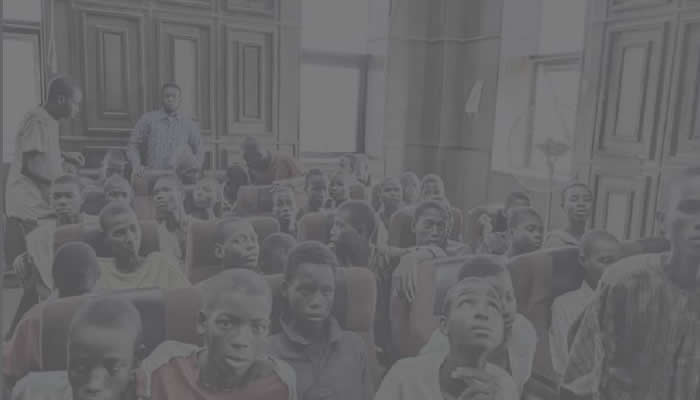Hassan Mohammed, a recent graduate of Economics from Kampala University in Uganda, was among the 39 protesters released as part of the #EndBadGovernance movement in Kaduna. He opened up about the unpleasant and harsh conditions he endured during his 90-day detention at Kuje Prison, where he highlighted issues related to inadequate food provisions. In interviews following his release, he recounted how detainees were served meager portions of garri and beans, depicting a grim picture of daily life behind bars. His revival into society was celebrated at a reunion event in Kaduna, where Governor Uba Sani expressed his government’s commitment to support and facilitate the reintegration of the protesters, signifying hope for their future.
Describing the timeline of his arrest, Mohammed explained that he was apprehended on August 5, 2024, during a protest staged along Ahmadu Bello Way in Kaduna. The police arrested him and his fellow demonstrators, subsequently transferring them to the State Criminal Investigation Department. During their initial detention, they were questioned about the reasons behind their protest, after which their statements were recorded before being moved to the Federal Criminal Investigation Department in Abuja. A total of 18 days were spent in Abuja, after which Mohammed and his companions were transferred to Kuje Prison, where they would remain for an additional 67 to 68 days. His testimony paints a picture of a troubling journey through the legal system, underscoring the serious challenges faced by those advocating for change in Nigeria.
Reflecting on his time in detention, Mohammed characterized the experience as “bad,” emphasizing that he and others were unjustly incarcerated for exercising their democratic rights. He highlighted the mental and physical toll of confinement in such a facility, calling attention to the conditions that many protestors like himself face in their quest for governance reforms. Despite the grim circumstances, he urged Nigerian youths to protest peacefully, discouraging any form of violence. His call for non-violent protests underscores the crucial role that peaceful demonstrations play in a democratic society, as well as his hopes for a more stable future for Nigeria’s youth.
In expressing gratitude following his release, Mohammed thanked key figures including President Bola Tinubu, the Kaduna State Governor Uba Sani, and the media for their efforts in securing the freedom of the protesters. His acknowledgment of their intervention reflects the broader struggle for civil liberties and the acknowledgment from government officials of the importance of those standing up against bad governance. Mohammed’s gratitude hints at a newfound sense of responsibility among civil society and political leaders to support peaceful advocacy rather than suppress it.
The reunion event highlighted the assistance provided to the protesters, with the Kaduna State government delivering various forms of support as they began the reintegration process. This included financial support of N100,000, new smartphones, and other resources to aid the released detainees in reestablishing their lives following their traumatic experience. Such gestures from the state can be viewed as an important step towards acknowledging the protesters’ rights and experiences, enabling a smoother transition back into society for those affected by the harsh realities of detention.
Ultimately, Hassan Mohammed’s testimony serves as a powerful reminder of the challenges faced by activists in Nigeria and the necessity for continued dialogue about governance and civil rights. His experiences underline the need for peaceful protests as a fundamental aspect of democracy and the aspirations of the Nigerian youth. As the government pledges support for those who seek to advocate for change, it is crucial that both the leadership and the general public come together to foster an environment where dissent is not met with incarceration but rather embraced as part of a vibrant democratic process.


